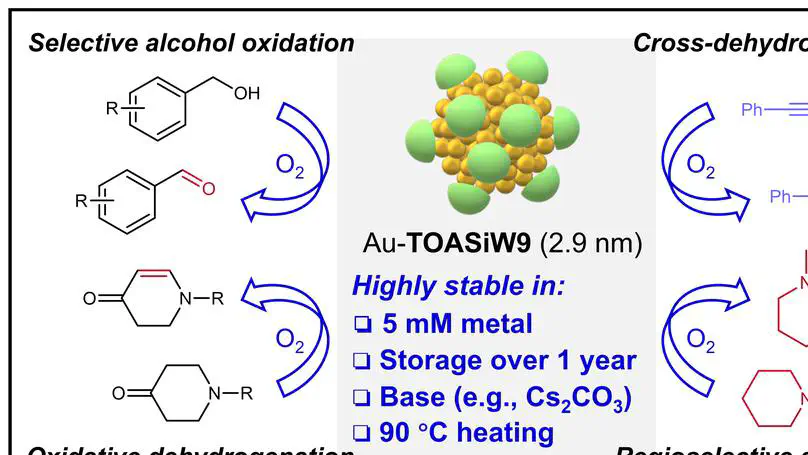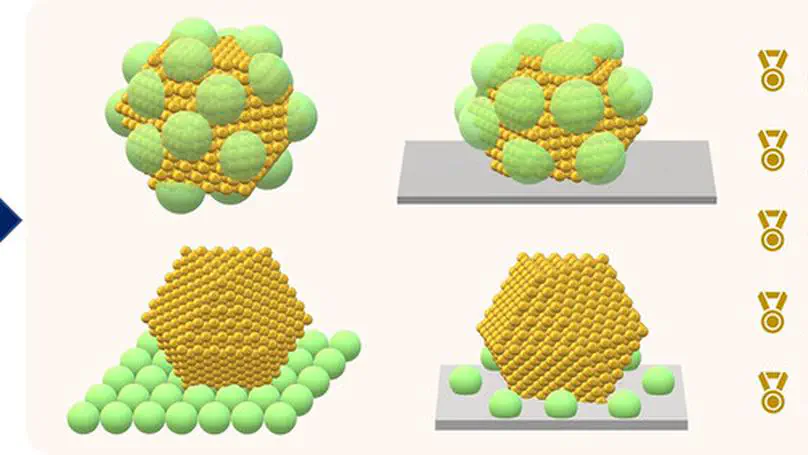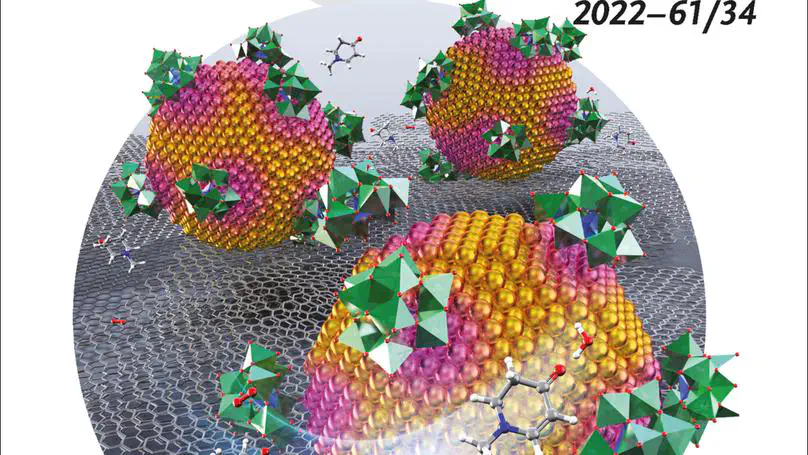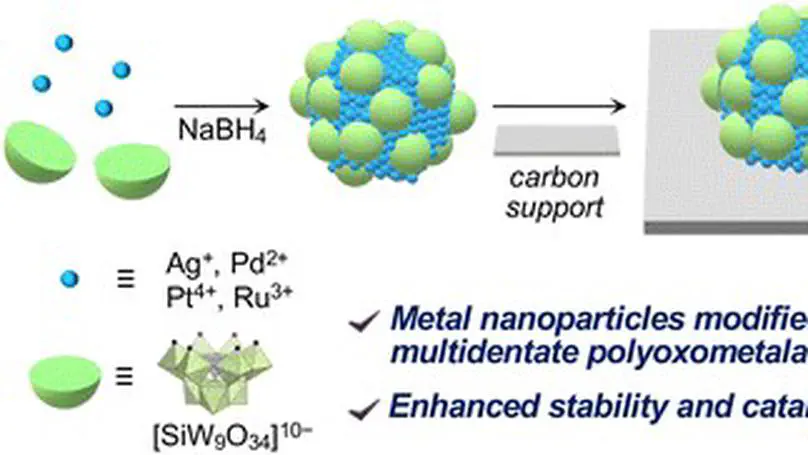Publications

Owing to their remarkable properties, gold nanoparticles are applied in diverse fields, including catalysis, electronics, energy conversion and sensors. However, for catalytic applications of colloidal gold nanoparticles, the tradeoff between their reactivity and stability is a significant concern. Here we report a universal approach for preparing stable and reactive colloidal small (~3 nm) gold nanoparticles by using multi-dentate polyoxometalates as protecting agents in non-polar solvents. These nanoparticles exhibit exceptional stability even under conditions of high concentration, long-term storage, heating and addition of bases. Moreover, they display excellent catalytic performance in various oxidation reactions of organic substrates using molecular oxygen as the sole oxidant. Our findings highlight the ability of inorganic multi-dentate ligands with structural stability and robust steric and electronic effects to confer stability and reactivity upon gold nanoparticles. This approach can be extended to prepare metal nanoparticles other than gold, enabling the design of novel nanomaterials with promising applications..

Hybrid materials that consist of metal nanoparticles and polyoxometalates have enormous potential in a multitude of applications, including electrochemistry, photochemistry, catalysis, biochemistry, and surface-enhanced Raman scattering (SERS). This Minireview highlights recent advances in this area, covering synthesis and applications as well as highlighting current limitations and future research opportunities.

A method is reported for the design of supported anionic gold nanoparticle catalysts modified using highly negatively charged multivacant lacunary polyoxometalates. Enhanced catalytic activity and stability of supported anionic gold nanoparticle catalysts was accessed in the aerobic oxidative dehydrogenation of piperidone derivatives to the corresponding enaminones.
